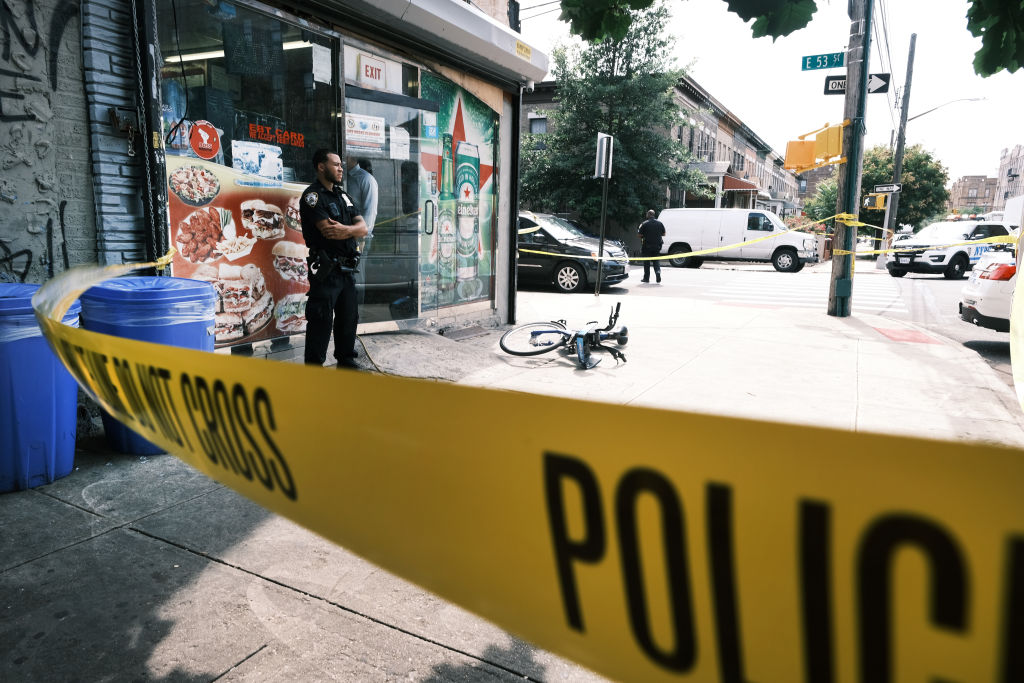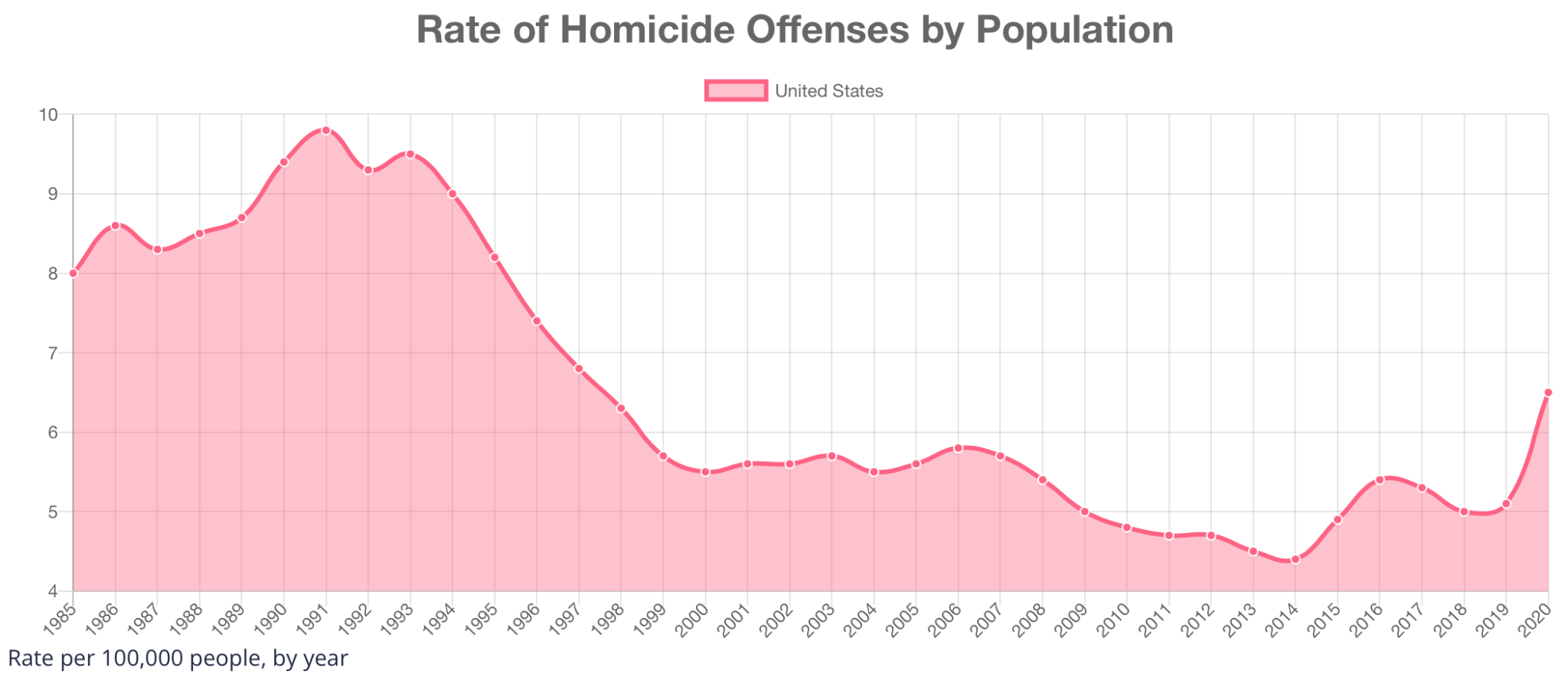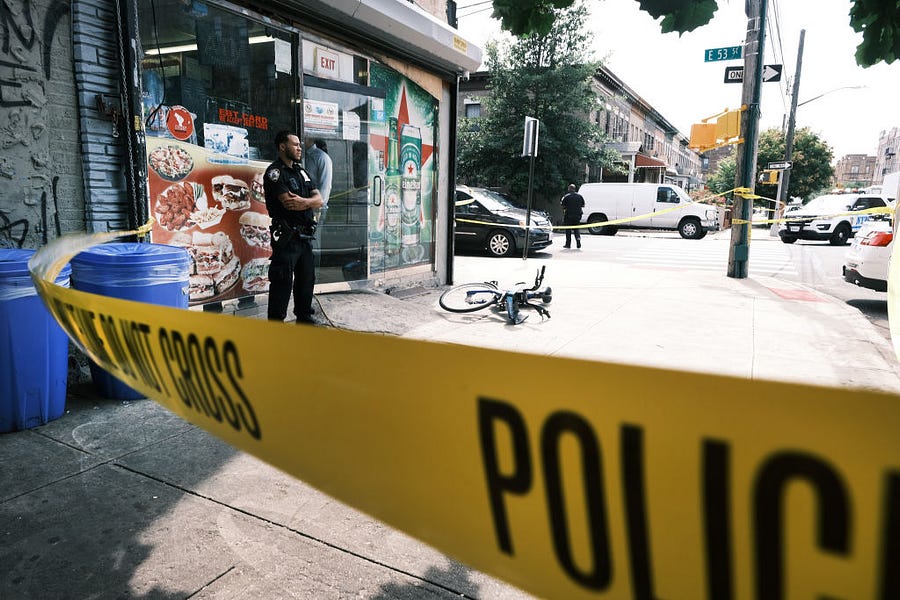Happy Tuesday! On this day in 1928, Dr. Alexander Fleming accidentally “revolutionized all medicine” by discovering the world’s first antibiotic, penicillin.
Here’s hoping that whoever is writing The Morning Dispatch a century from now is able to look back on mRNA vaccine technology as a similarly pivotal breakthrough.
Quick Hits: Today’s Top Stories
-
Senate Republicans blocked a House-passed measure to fund the government and suspend the debt ceiling on Monday, reiterating their position that Democrats should raise the debt limit on their own through reconciliation. Senate Minority Leader Mitch McConnell said yesterday Republicans would support a “clean continuing resolution” to prevent a government shutdown without the debt ceiling provision, and—with the government set to shut down Thursday night—Democrats appear poised to take him up on the offer.
-
Two regional Federal Reserve presidents, Rob Kaplan of the Dallas Fed and Eric Rosengren of the Boston Fed, announced Monday they would resign their positions in the coming days. Both had come under fire in recent weeks for trading securities in 2020 that were potentially boosted by the Federal Reserve’s intervention in financial markets. Kaplan acknowledged the controversy in the announcement of his resignation, while Rosengren cited a health issue.
-
The Chinese Communist Party announced new guidelines on Monday declaring China will reduce the number of abortions performed in the country for “non-medical purposes.” Details on the plan were sparse, but it comes months after the CCP raised families’ child limit from two to three, and a year after the country’s birth rate fell to its lowest level since 1961.
-
President Joe Biden received his COVID-19 vaccine booster shot on camera Monday, encouraging Americans eligible to do the same. Sen. Mitch McConnell also said he received a booster shot on Monday, adding that “mountains of evidence tell us these shots are safe and effective.”
-
Rep. Karen Bass of California, who was on Joe Biden’s vice presidential shortlist last year, announced Monday she will run for mayor of Los Angeles next year.
-
South Korean and Japanese officials said North Korea fired a short-range missile into the ocean early Tuesday morning, just two weeks after it violated several U.N. Security Council resolutions by launching two ballistic missiles.
Violent Crime Spikes in 2020, Property Crime Down

The FBI released its long-awaited 2020 crime data on Monday, and the results were grim. Property crime fell nearly 8 percent from 2019 to 2020, but violent crime increased 5.6 percent year-over-year—headlined by an unprecedented 29.4 percent spike in murder and nonnegligent manslaughter.
The topline figures are eye-popping, but those paying close attention weren’t surprised. “This is basically what we expected,” Charles Fain Lehman, a fellow at the Manhattan Institute’s Policing and Public Safety Initiative, told The Dispatch. “This is what all the city-level data said, this is what the preliminary quarterly FBI data said, this is what the state-level data said.”
Monday’s report—based on data from 15,875 of the 18,623 law enforcement agencies in the country—makes it official: Violent crime worsened last year for the first time since 2016, and murder in particular rose at the steepest one-year pace on record—nearly 2.5 times the increase from 1967 to 1968. Aggravated assault and motor vehicle theft increased year-over-year, while larceny, robbery, and burglary continued to fall. “It’s hard to commit shoplifting when stores are closed,” New Orleans-based crime analyst Jeff Asher quipped in the New York Times.
It’s important to note that the United States today remains far safer than it was 30 to 40 years ago—even after last year’s crime surge. In 2020, according to the FBI, just fewer than 400 violent crimes were committed per 100,000 people, compared to nearly 760 per 100,000 in 1991. Because the murder rate was near a record low in 2019, the 30 percent jump translates to approximately 4,900 additional murders nationwide, bringing 2020’s total to about 21,600.


The report, like seemingly everything else nowadays, got swept up into the national culture war, with partisans on both sides of the aisle attempting to use the disturbing trend as a cudgel with which to bash their political opponents. Former Trump press secretary Kayleigh McEnany blamed President Biden for the murder spike on Twitter, only to delete her tweet when she realized the data was from the final year of the Trump administration.
“It’s clear: more guns = more violence,” Democratic Rep. Betty McCollum argued. “While Trump & GOP pushed the narrative that more guns makes us safer, the last year of the Trump admin saw the largest 1-year increase in gun-related homicides, with more guns on our streets than ever.”
Rep. Ken Buck, a Republican, was just as confident in his own conclusion. “This isn’t surprising, following a nationwide effort led by Democrats to defund the police in 2020,” he said Monday. “If you gut police budgets, murder rates will skyrocket. Simple.”
Perhaps unsurprisingly, both talking points contain kernels of truth—but not the whole story. Various criminologists have zeroed in on three main drivers of the uptick: A record number of gun sales in 2020, pandemic-induced economic hardship and stress, and various degrees of depolicing in the wake of last summer’s George Floyd protests. “I think all three are ultimately contributory,” Lehman told The Dispatch. “I think the serious position is that all three mattered. And the question is which ones mattered more, which ones mattered less.”
Gun sales soared during the pandemic, increasing 40 percent year-over-year to a record 40 million in 2020. And as Asher pointed out Monday, approximately 77 percent of the murders reported last year were committed with a firearm. There may be some evidence that people carrying their guns more regularly during the pandemic contributed to more armed confrontations, but it typically takes years—an average of 9.3, according to a 2017 Bureau of Alcohol, Tobacco, and Firearms report—for legally purchased guns to reach the black market.
Any analysis of rising violent crime rates in 2020 has to begin with the once-in-a-century pandemic we all lived through. Millions of people lost a friend or family member to the virus, and tens of millions were put out of work or confined by the lockdowns of early 2020. Sharp increases in drug overdoses, domestic violence police calls, and murder followed. “This is a country where everybody is suffering a little post-COVID traumatic syndrome, and not knowing what is going to happen,” Peter N. Winograd, a professor emeritus at the University of New Mexico who works as a consultant for the Albuquerque Police Department, told the New York Times. “That is huge.”
Also huge has been the change in policing tactics and priorities following the Floyd protests and the cultural response to them. “Importantly, that’s different from ‘Defund the Police,’ because by and large most jurisdictions did not defund the police last year,” Lehman said. But among cops, he continued, “there’s a strong sense that, basically, they’re perceived as bad guys, they’re not trusted or liked or respected by the public. And that reduces on some margin their willingness or ability to engage in policing.” The New York City Police Department, according to Chief of Personnel Martin Morales, shrank by about 2,500 officers in 2020.
Cops’ “legitimacy crisis,” as a trio of criminologists described it in the Denver Post a few months ago, can manifest in a variety of ways. “The first is depolicing, where officers pull back from proactive policing in response to public criticism,” they write. “Second, depleted trust in the law means citizens will think twice about calling the police to report crimes or suspicious behaviors. Lastly, delegitimacy of the law emboldens criminal offending populations, as the moral obligation to follow the law is weakened.”
The Biden administration unveiled a “comprehensive strategy” to combat gun crime back in June, pledging to crack down on rogue gun dealers and allowing cities experiencing a surge in gun violence to use American Rescue Plan funds to hire more law enforcement officers. “But federal policy can only do so much,” Lehman said. “Criminal justice is uniquely a local issue. … Basically the federal government can just throw money at this a little bit haphazardly, that’s all they can really do. Policy is set at the local and to some extent state level.”
Early indications are that the murder rate has continued to rise over the first nine months of 2021, but much more slowly than it did last year.
Congress’ Mad Dash
After that bummer of a lead item, we have some good news: Haley is back from maternity leave—just in time for one of Congress’ most chaotic weeks in recent memory. “As you all know, this is an interesting week,” House Rules Committee Chairman Jim McGovern said yesterday. “Lots to do. Not sure how or when. But it will all work out. It will all be great.”
Is McGovern’s optimism misplaced? Today’s Uphill from Haley, Harvest, and Ryan catches readers up on all that’s transpired at the Capitol since Friday’s TMD, and lays out what to expect in the coming days.
Reminder: Click here to make sure you receive Uphill in your inbox on Tuesdays and Fridays.
Democrats have made some nominal progress on their dual-track approach to the bipartisan infrastructure deal and reconciliation package—but the fates of both bills remain far from certain.
Over the weekend, the House Budget Committee passed the more than 2,400-page budget reconciliation bill out of committee on a party line vote. As it’s written now, the bill calls for $3.5 trillion in spending. But the details are far from firm. House Speaker Nancy Pelosi said in an interview on ABC News over the weekend that it seems “self-evident” the final number will be lower than $3.5 trillion.
Expect several days of intense negotiations between various factions and leadership: Progressive Democrat Rep. Jamaal Bowman of New York told reporters after votes Monday that there are “a lot more conversations to be had to figure out what it is we’re going to do.”
Over the summer, Pelosi reached a tenuous balance between moderates and progressives in which she said she would bring the two bills forward about the same time with the goal of passing both by October 1. During a caucus meeting Monday night, though, Pelosi announced she no longer plans to advance the traditional infrastructure measure in tandem with the sweeping $3.5 trillion package, as Democratic leaders are still negotiating with moderate Sens. Joe Manchin and Kyrsten Sinema over what, exactly, they will be willing to support in the larger bill.
Manchin and Sinema have both said they oppose the prospect of a $3.5 trillion plan, with Manchin writing an op-ed earlier this month saying he will not support that amount and Sinema making the same clear through a spokesperson.
Regardless of the state of talks with Manchin and Sinema, Pelosi said, the House will proceed with the bipartisan infrastructure framework (also known as the BIF).
“We had to accommodate the changes that were being necessitated,” Pelosi told members, according to a source familiar with her comments. “And we cannot be ready to say until the Senate passed the bill, we can’t do BIF.”
Senate Republicans followed through on their pledge to block a bill Monday night that would have suspended the debt ceiling through December 2022, arguing that Democrats should do it themselves.
The legislation, which passed the House last week, would have also funded the government through December 3 ahead of a shutdown deadline Thursday at midnight. It included relief for those impacted by recent natural disasters as well as money to accommodate Afghan refugees. The bill failed with a vote of 48-50—no Republicans supported it.
There is no clear path yet to fund the government before Thursday’s deadline, although options are available. Democratic leaders may now consider a standalone funding measure to avert a shutdown.
“Keeping the government open and preventing a default is vital to our country’s future and we’ll be taking further action to prevent this from happening this week,” Senate Majority Leader Chuck Schumer said Monday night.
A separate funding bill that does not address the debt ceiling would have enough backing from Republicans to pass.
Republicans say they largely acknowledge the need to raise the debt limit, but they argue Democrats should have to do it alone through the special budget reconciliation process because of Democratic plans to approve a massive social spending bill in the coming weeks through reconciliation. Hiking the debt ceiling is feasible through budget reconciliation, and Republican leaders have been unequivocal that they will not support suspending the limit for months. But the reconciliation bill is far from a done deal, and it’s not clear when it might pass.
Even if Democrats were to abandon their $3.5 trillion plan altogether, the debt ceiling would still have to be addressed. Much of the debt in question stems from legislation passed under former President Trump with support from most congressional Republicans, such as the GOP tax cuts approved in 2017.
Worth Your Time
-
The amount of easy money flying around in the U.S. tech sector creates a steady stream of wild stories, but have you heard the one about the guy at media startup Ozy who impersonated a YouTube executive to try to dupe Goldman Sachs into a big investment? Well, you will have after you read Ben Smith’s latest media column. If that isn’t enough of a sign of the times for you, maybe the excuse Ozy offered for the failed dupe will be: “In his apology to Goldman Sachs and in an email to me on Friday, Mr. Watson attributed the incident to a mental health crisis and shared what he said were details of Mr. Rao’s diagnosis … ‘I’m proud that we stood by him while he struggled, and we’re all glad to see him now thriving again.’”
-
With Pfizer’s third COVID-19 vaccine shot now authorized for millions, Vox’s Sigal Samuel has a great explainer on what happened to promises of a Delta-specific booster: Various companies have developed one, but they’re still in testing—and might not actually be necessary. “Pfizer/BioNTech and Moderna have already produced customized, delta-targeted vaccines,” she writes. “Both drugmakers have also been testing their original vaccines for their effectiveness as boosters. Pfizer, per its second-quarter earnings report, found that administering a third dose of its vaccine led to a fivefold increase in antibodies against delta in 18- to 55-year-olds, and an 11-fold increase in 65- to 85-year-olds. And according to a Moderna press release, when the company tried out a third dose of its original vaccine, the results were stellar: It produced a 42-fold increase in antibodies against delta.”
Presented Without Comment
Toeing the Company Line
-
With Sarah out this week, David went one-on-one with Greg Lukianoff of the Foundation for Individual Rights in Education on Monday’s episode of Advisory Opinions. The two discussed the state of free speech on college campuses and how it affects the U.S. workforce and culture beyond the academy.
Let Us Know
As Charles Fain Lehman noted above, crime is inherently a local issue. Have you noticed any trends in your community over the past few years?
Reporting by Declan Garvey (@declanpgarvey), Andrew Egger (@EggerDC), Charlotte Lawson (@lawsonreports), Audrey Fahlberg (@AudreyFahlberg), Ryan Brown (@RyanP_Brown), Harvest Prude (@HarvestPrude), and Steve Hayes (@stephenfhayes).







Please note that we at The Dispatch hold ourselves, our work, and our commenters to a higher standard than other places on the internet. We welcome comments that foster genuine debate or discussion—including comments critical of us or our work—but responses that include ad hominem attacks on fellow Dispatch members or are intended to stoke fear and anger may be moderated.
With your membership, you only have the ability to comment on The Morning Dispatch articles. Consider upgrading to join the conversation everywhere.